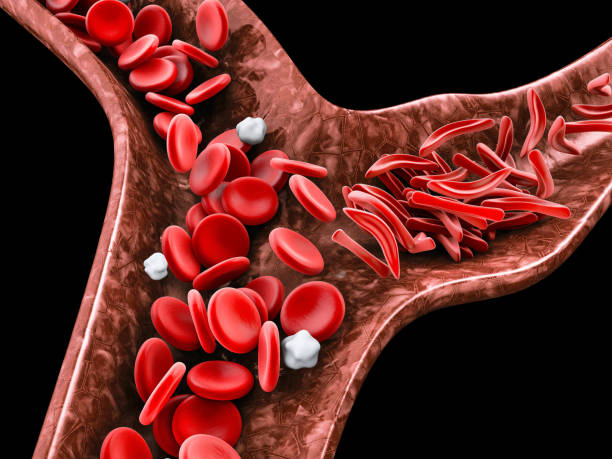Do you suspect you may have blocked arteries and are wondering if it is possible to clear them without having surgery? Yes, it is possible to learn how to clear blocked arteries without surgery, and we will teach you all you need to know in this guide.
Clogged arteries occur when plaque accumulates in the arteries and makes them narrow or blocked; it becomes difficult for blood to flow properly through the body, and when there is a shortage of blood supply in the body, many organs and systems will suffer. So, if you think your arteries are blocked, read through this guide to learn how to fix them without surgery.
Diagnosis of Blocked Arteries
Before concluding that your arteries are clogged, getting an accurate diagnosis from your healthcare provider is essential. So, how are blocked arteries diagnosed?

- Elеctrocardiogram (ECG or EKG):
An electrocardiogram records the heart’s electrical activities to identify irregular heart rhythms.
- Strеss Tеst:
This test helps to show how the heart responds to physical activity.
- Echocardiogram:
An echocardiogram creates images of the heart’s structure and function; this can help detect any problem with the heart valve and blood circulation. This test can indirectly indicate if there is any blockage in the arteries.
- Coronary Angiography:
With this procedure, a contrast dye is injected into the coronary arteries, and X-ray images are taken to visualise the coronary arteries and identify any blockages.
- CT Angiography (CTA):
This non-invasive procedure illustrates the coronary arteries and helps evaluate the presence and extent of clogs in the artery.
- Magnеtic Rеsonancе Angiography (MRA):
This procedure involves using magnetic resonance imaging (MRI) to create an image of the coronary artery.
- Blood Tеsts:
Some blood tests can provide valuable information about your heart health and help detect triglycerides, cholesterol and protein levels.
What Are The Symptoms Of A Clogged Artery?
Angina, or chest pain, is one of the most typical signs of an obstructed artery. A squeezing tightness or heaviness centered on your chest has been characterized as angina. Usually, pain radiates from the area around your breastbone to your left arm or shoulder. Additionally, it could spread to your upper back or jaw.
When you strain yourself, you normally have angina pain from a clogged artery, which usually goes away with rest. Additional signs and symptoms could be:
- lightheadedness
- having a rushing feeling in your heart
- indigestion or nausea
- breathlessness
- sweating
- weakness
How to Clear Blocked Arteries Without Surgery
If you have gotten an accurate diagnosis of your condition and are confident you have some clogged arteries, here are some ways to unclog them without surgery.
Mediations
Your cardiologist may prescribe some medications like blood pressure meds, cholesterol medication such as statin, diabetes medications such as insulin, and anticoagulants. These medications are to help manage the underlying causes of clogged arteries.
Herbal Teas
Herbal teas can be excellent substitutes for beverages as you journey towards better heart health. Green tea has been reported to help lower cholesterol levels, including LDL, but it does not include HDL. Ginger is also an excellent supplement for improving cardiovascular health; ginger root can be brewed as tea, and you can add it to your meals.

Lifestyle Changes
Adopting some heart-healthy lifestyle modifications is very effective for treating, managing and preventing clogged arteries; these lifestyle changes include quitting smoking, exercising and eating a balanced diet with low saturated and trans fat, red meat, cheese, oil, and so on. You should also incorporate many fruits and vegetables into your diet to get maximum nutrients from your food. Other lifestyle changes include managing stress levels and regular physical activity.
Diet Changes
Incorporating good foods rich in omega-3 fatty acids, antioxidants, and fibre in your diet can help slow down plaque buildup; you can get a diet plan that suits your condition from a registered dietician.
Weight Management
Studies have shown that obesity or being overweight can also cause a buildup of plaque in the arteries. So maintaining a healthy weight can help alleviate the strain on the heart and significantly enhance cardiovascular health.
Supplements
Since you already know the importance of a healthy diet in treating blocked arteries and maintaining optimum heart health, if you can’t get all the vital nutrients you need from your food, you can use supplements to get a balanced diet.
Garlic, omega-3 fatty acids, coenzyme Q10 and yeast rice are some of the supplements that can help reduce cholesterol levels and improve heart health. However, you should consult your doctor before using any supplement.

Chelation Therapy
Chelation therapy involves intravenous treatment with medications to remove heavy metals and minerals from the body. This can reduce plaque in the arteries; however, while some people may have explored this option, its effectiveness is still debatable among medical professionals.
See also: Best Foods For Diabetic Patients
These are some of the most effective things you can do to treat clogged arteries; however, their effectiveness varies from person to person, so what works for someone may not work for you. Therefore, individualized treatment plans are essential in this regard.
In conclusion, while exploring these options, you should check in regularly with your doctor to monitor your progress and make adjustments when necessary; if one option isn’t working, you can try another.
In addition, whatever lifestyle changes you make to treat this condition must be long-term commitments to maintain the health of your arteries.



